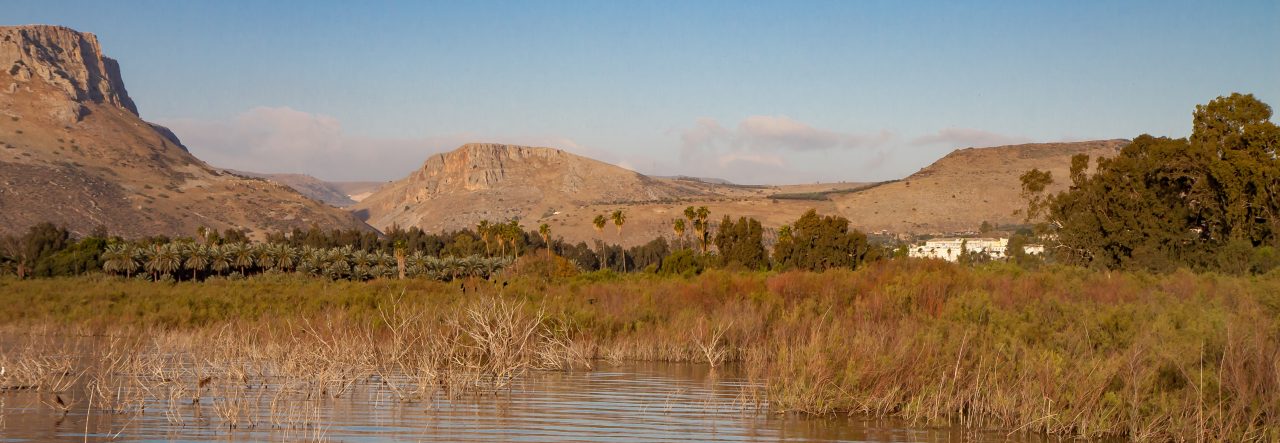Continued from Spirit of God Part 1
Throughout the Torah, the early writings that were given to the people of God through Moses contained many examples of God’s spirit and His action in the lives of His people. Not only would the spirit be attributed to creation and life, but it would be seen as the power of God working in and through His chosen people. Examples of this can be seen in passages like Ex 28:3, 35:31, Nu 11:17, 11:25, Dt 34:9. Later writings would also have similar descriptions of God’s spirit at work in his servants. Sometimes anthropomorphic terms would be used to describe the work of the spirit in such a way to emphasize importance or urgency in the Spirits action like we see in 1 Sam 11:6 – “And the Spirit of God rushed upon Saul when he heard these words, and his anger was greatly kindled.” (ESV) The Spirit which is present everywhere and at all times is shown here to rush upon Saul, giving urgency to what the Spirit was doing through Saul.
Later on in the scriptures, David would pen various psalms (Ps 139:7-10) that would also give us more insight into the very essence of God. In many Eastern cultures, their gods were more like humans and were not present everywhere at all times, but in the Psalms, David shows us that God’s spirit is present everywhere and at all times. Throughout the scriptures, God’s spirit would be attributed to His presence, so we could understand that the very essence of God is present everywhere and at all times.
In the prophets we would see even more of the Spirits actions in the lives of his people when they would show that from the Spirit would flow wisdom and understanding, yet, the prophets would also repeat the original theme of life and creative power like in Isaiah – “Thus says God, the Lord, who created the heavens and stretched them out, who spread out the earth and what comes from it, who gives breath to the people on it and spirit to those who walk in it:” (Isaiah 42:5, ESV) It is also shown that it is God’s spirit that enables men to continue to carry His image to a world that has lived in darkness and chaos. (Is 61:1)
The prophets also show us another aspect of the very presence of God, that in our rebellion and sinfulness we can grieve the Spirit, which is just a way of showing that we are grieving God. “But they rebelled and grieved his Holy Spirit; therefore, he turned to be their enemy, and himself fought against them. Then he remembered the days of old, of Moses and his people. Where is he who brought them up out of the sea with the shepherds of his flock? Where is he who put in the midst of them his Holy Spirit,” (Isaiah 63:10–11, ESV) In this very passage the He is God and it shows that He is the one who is in the midst of His people, and it is His spirit, the very essence of who He is that is grieved.
A beautiful passage where we see future actions of the ruah is the wonderful promise to all the people of God is Ezekiel 36:25-27. It is here that God tells His people that he will gather them from the places they have been scattered and cleanse them. Then he tells them that he will give them a new heart, a new or fresh spirit, He will put His Spirit (ruah – breath) within them so that they will walk in His ways. “I will sprinkle clean water on you, and you shall be clean from all your uncleannesses, and from all your idols I will cleanse you. And I will give you a new heart, and a new spirit I will put within you. And I will remove the heart of stone from your flesh and give you a heart of flesh. And I will put my Spirit within you, and cause you to walk in my statutes and be careful to obey my rules.” (Ezekiel 36:25–27 ESV) This should drive the reader straight back to Genesis and the ideas regarding God as the Life-giver.
A similar passage is also given in Jer 31:31, where it is tied to a new or refreshed Covenant that will be given to the people of God. ““Behold, the days are coming, declares the Lord, when I will make a new covenant with the house of Israel and the house of Judah, not like the covenant that I made with their fathers on the day when I took them by the hand to bring them out of the land of Egypt, my covenant that they broke, though I was their husband, declares the Lord. For this is the covenant that I will make with the house of Israel after those days, declares the Lord: I will put my law within them, and I will write it on their hearts. And I will be their God, and they shall be my people. And no longer shall each one teach his neighbor and each his brother, saying, ‘Know the Lord,’ for they shall all know me, from the least of them to the greatest, declares the Lord. For I will forgive their iniquity, and I will remember their sin no more.”” (Jeremiah 31:31–34, ESV) If you ponder these passages you will see an interesting parallel to God’s spirit and God’s Torah. In Ezekiel God says he will put his spirit in them and cause them to walk in His Torah, whereas in Jeremiah he says that he will put his Torah in them and that they will Know the Lord.
This opens the door to the world of the coming of God in the flesh as the Messiah of Israel. We will continue to explore these ideas found in the New Testament in Part 3.
